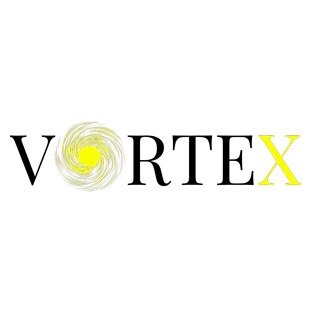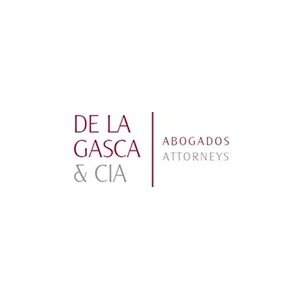Best Energy, Environment & ESG Lawyers in El Salvador
Share your needs with us, get contacted by law firms.
Free. Takes 2 min.
Or refine your search by selecting a city:
List of the best lawyers in El Salvador
About Energy, Environment & ESG Law in El Salvador
Energy, Environment & ESG (Environmental, Social, and Governance) law in El Salvador is an area of legal practice that addresses how individuals, businesses, and organizations interact with the environment, manage energy resources, and comply with sustainability standards. The legal framework covers regulations on energy generation and distribution, environmental protection, waste management, social responsibility, and corporate governance. As El Salvador continues to modernize its energy matrix and prioritize renewable energy, legal compliance and the integration of ESG principles have become increasingly important for both local and international stakeholders.
Why You May Need a Lawyer
People and organizations may require legal assistance in Energy, Environment & ESG in various situations, including:
- Obtaining permits and licenses for energy projects such as solar, wind, or hydroelectric installations
- Ensuring compliance with complex environmental regulations to avoid fines or sanctions
- Navigating disputes with local authorities, communities, or other businesses relating to environmental impact
- Drafting and reviewing contracts that include sustainability clauses or ESG commitments
- Responding to government inspections, investigations, or enforcement actions concerning environmental legislation
- Participating in public consultations or environmental impact studies
- Integrating ESG standards into corporate governance, reporting, and operations
- Structuring investments in renewables or sustainable projects to take advantage of legal incentives
Local Laws Overview
El Salvador’s legal framework for Energy, Environment & ESG includes several key laws and regulations:
- General Environmental Law (Ley de Medio Ambiente): Establishes the obligations for environmental protection, pollution prevention, and sustainable resource use. It requires environmental impact assessments for certain activities.
- Electricity Law (Ley General de Electricidad): Governs the generation, transmission, distribution, and commercialization of electrical energy. The law promotes the development of renewable energy and establishes requirements for market participation.
- Renewable Energy Incentives: There are specific regulations and programs designed to attract investment in renewable sources, including tax exemptions and preferential treatment for clean energy projects.
- Water Resources Law: Regulates water use, quality standards, and the preservation of aquatic ecosystems. Water concessions and wastewater management require official permits.
- Waste Management Regulation: Sets standards for hazardous and solid waste generation, collection, transport, and disposal to minimize environmental impact.
- ESG Reporting (for Companies): While not all ESG reporting is mandated by law, there is increasing pressure from regulators, investors, and consumers for transparent corporate ESG disclosures, especially for larger or international firms.
Frequently Asked Questions
What permits are needed to start a renewable energy project in El Salvador?
Generally, you will need an environmental permit, a construction permit, and a concession for energy generation. The specific requirements depend on the type and scale of the project, and a legal advisor can help navigate the process.
What are the penalties for violating environmental laws?
Penalties can include fines, suspension or closure of activities, and even criminal charges for severe violations. The seriousness of the infraction and the environmental impact will determine the specific sanctions.
Are there incentives for investing in clean energy?
Yes, El Salvador offers tax incentives, grants, and streamlined permitting for renewable energy projects. These are designed to promote solar, wind, geothermal, and other sustainable energy sources.
Who enforces environmental regulations in El Salvador?
The Ministry of Environment and Natural Resources (MARN) is the primary authority responsible for enforcing environmental laws, conducting inspections, and issuing permits.
What is an environmental impact assessment (EIA)?
An EIA is a detailed study required for certain projects that evaluates the potential environmental effects and proposes mitigation measures. Approval from environmental authorities is required before proceeding with the project.
What should a company include in its ESG reporting?
Companies should disclose policies, practices, and performance in environmental stewardship, social responsibility, and corporate governance. This can include resource use, emissions, labor practices, and board diversity.
Can individuals complain about environmental harm?
Yes, any individual or group can file a complaint with MARN or the Attorney General if they witness unlawful environmental practices or damage. Authorities are obligated to investigate and take action if warranted.
How are water rights regulated?
Water use requires a concession or permit, especially for industrial, agricultural, or commercial purposes. The government monitors usage to protect water resources and ensure fairness.
Can foreign investors participate in energy projects?
Yes, foreign investment is encouraged, particularly in renewable energy. However, investors must comply with local laws regarding permits, agreements with local authorities, and land acquisition.
What is the role of communities in environmental decision-making?
Communities have the right to participate in public consultations for projects that may impact their environment. Authorities consider public input before granting approvals, especially in sensitive areas.
Additional Resources
For further assistance or information on Energy, Environment & ESG in El Salvador, consider the following resources:
- Ministry of Environment and Natural Resources (MARN): The government body responsible for environmental policy, permits, inspections, and enforcement.
- National Energy Council (CNE): Oversees energy policy, planning, and incentives in the energy sector.
- Attorney General’s Environmental Unit: Handles complaints and investigations regarding environmental harm.
- Chamber of Renewable Energy: Industry group providing support and advocacy for renewable energy investors.
- Business chambers and legal aid clinics: Organizations that often provide guidance or referrals for legal advice in environmental and energy issues.
Next Steps
If you need legal assistance in Energy, Environment & ESG in El Salvador, consider the following steps:
- Identify your specific needs-whether it relates to permits, compliance, investments, or dispute resolution.
- Gather all relevant documentation, such as business plans, environmental studies, or official correspondence.
- Contact a lawyer or law firm experienced in local energy, environmental, or ESG matters. They can assess your situation and recommend suitable strategies.
- Consult with relevant authorities, such as MARN or CNE, to clarify regulatory requirements and obtain official guidance.
- Follow your lawyer’s advice when applying for permits, conducting impact assessments, or addressing compliance issues to ensure your interests are protected and in accordance with Salvadoran law.
Lawzana helps you find the best lawyers and law firms in El Salvador through a curated and pre-screened list of qualified legal professionals. Our platform offers rankings and detailed profiles of attorneys and law firms, allowing you to compare based on practice areas, including Energy, Environment & ESG, experience, and client feedback.
Each profile includes a description of the firm's areas of practice, client reviews, team members and partners, year of establishment, spoken languages, office locations, contact information, social media presence, and any published articles or resources. Most firms on our platform speak English and are experienced in both local and international legal matters.
Get a quote from top-rated law firms in El Salvador — quickly, securely, and without unnecessary hassle.
Disclaimer:
The information provided on this page is for general informational purposes only and does not constitute legal advice. While we strive to ensure the accuracy and relevance of the content, legal information may change over time, and interpretations of the law can vary. You should always consult with a qualified legal professional for advice specific to your situation.
We disclaim all liability for actions taken or not taken based on the content of this page. If you believe any information is incorrect or outdated, please contact us, and we will review and update it where appropriate.
Browse energy, environment & esg law firms by service in El Salvador
El Salvador Attorneys in related practice areas.
Browse energy, environment & esg law firms by city in El Salvador
Refine your search by selecting a city.













